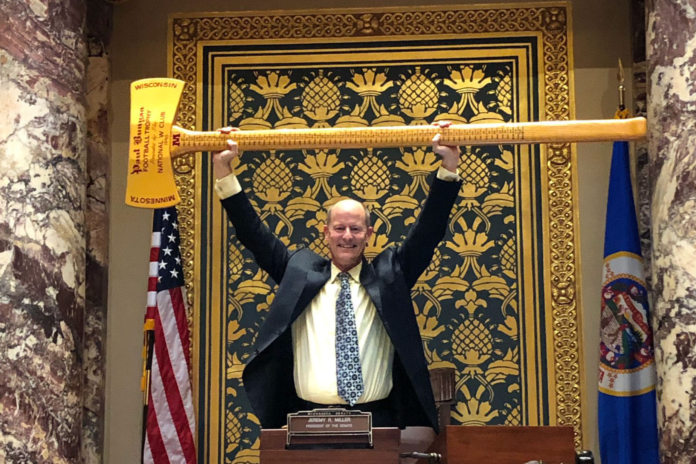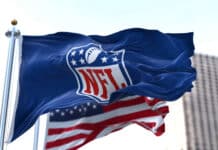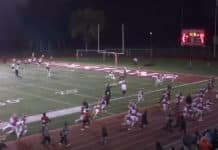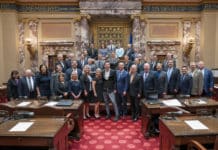
Michigan House Speaker Lee Chatfield of Levering and nine other Republican Midwest lawmakers Tuesday sent a letter encouraging Big Ten Commissioner Kevin Warren to reverse its decision for the fall season.
The fall season was canceled in August, changing a Midwest culture charged by regional rivalries.
“The Big Ten’s current direction is the wrong choice for the conference, for our area universities, and – worst of all – for thousands of our local students,” Chatfield said in a statement.
“As a former student athlete, a teacher, a coach, an athletic director, and now as a parent, I know how important sports can be to young people and their development,” Chatfield said.
“The Big Ten should reverse course as soon as possible and do everything possible to help their students restart extracurricular activities safely.”
The lawmakers from Iowa, Ohio, Michigan, Minnesota, Pennsylvania, and Wisconsin said they were encouraged by parents, students, and coaches to advocate for competing in the fall and wanted “to defend the students’ long-term academic and career interests.”
“These athletes are losing a vital part of student life and are becoming less marketable to future employers with each passing week,” they wrote. “Additionally, our local universities stand to lose hundreds of millions of dollars that support vital student scholarships.”
The leaders argued the Big Ten released updated and enhanced health and safety COVID-19 protocols, including testing and quarantining, but those plans were tossed aside.
“Our coaches and players should be given a chance to make them work,” the letter says. “After all, this region is home to some of the world’s leading institutions of higher learning, scientific research and medicine, and we are confident that they can continue to safeguard the health and safety of our student athletes.”
President Donald Trump tweeted on Sunday that “Big Ten Football is looking really good, but may lose Michigan, Illinois, and Maryland because of those Governors’ ridiculous lack of interest or political support. They will play without them?”
A canceled season would also hurt the businesses that rely on gameday sales.
A Forbes report ranked the University of Michigan as the 3rd most valuable team in 2019, with a three-year average revenue of $147 million.
Michigan State University (MSU) took the 22nd spot, with the Spartans seizing a three-year average revenue of $87 million.
A 2007 study from the Anderson Economic Group estimated the economic impact of Big 10 football games in Michigan is more than $177 million.
MSU Athletic Director Bill Beekman said last month that a canceled football season would require severe cuts to the MSU athletic department and about an $85 million loss in revenue.
The Michigan Department of Health and Human Services (DHHS) last week released guidance on youth organized sports and recommended against contact sports, including football, basketball, and soccer.
Michigan Chief Medical Executive Dr. Joneigh Khaldun cited 30 reported outbreaks involving athletic teams and facilities in August.
“Based on current data, contact sports create a high risk of COVID-19 transmission and MDHHS strongly recommends against participating in them at this time,” Khaldun said in a statement. “We are not out of the woods yet. COVID-19 is still a very real threat to our families.”
– – –
This article was republished with permission from The Center Square.

















